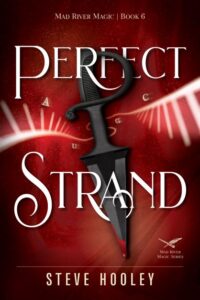
Science is “the systematic study of the structure and behavior of the physical and natural world through observation, experimentation, and the testing of theories against the evidence obtained.” (Oxford Languages) – my italics
Perception is “a way of regarding, understanding, or interpreting something; a mental impression.” (Oxford Languages) – basically, the way we see the facts from our perspective
Note that “perception” is our view of the facts at a given moment. Science is an ongoing testing of the “facts” that is continuously changing the “facts.”
There has been an ongoing conflict between perception and science since humans began declaring their perception as science. Ex. “The earth is flat.” Or, “the sun rotates around the earth.”
And that conflict continues today, often with someone’s bias inserted into the perception:
- A Chinese “weather balloon” gently drifting across the U.S. … and making figures-of-eight over high security military sites
- Installation of “climate-friendly” wind turbines off the east coast … and whales washing up on the beach
- The “facts” about the Covid virus, immunizations, and preventative measures that were presented to the public … and later, in the light of science, were shown to be more someone’s perception or bias
- Developing AI technology (see Debbie’s post from last week) and its “promise” of benefits … when it is already being used for nefarious purposes
Note that all these examples are filled with conflict and are ripe with opportunity for insertion into our stories.
So, your assignment, should you choose to accept it:
- What examples of fact vs. fiction (science vs. perception) have you used in your stories, or enjoyed in stories by others?
- What other examples of science vs. perception can you think of that might be useful for conflict in a story?
~~~

A powerful wizard uses Covid “jabs” to spread his DNA and achieve immortality.
Available on Amazon. Currently priced at $0.99.

I’m going to take a different route on my answer in that I have never wanted to write modern day fiction and I very rarely read it. I prefer instead to escape to bygone eras. I had to be pulled kicking and screaming from the 1800’s into the 1917-based novel I’m working on now. LOL!
But from a historical standpoint, re: science v. perception a key area was medical science. Much was still being learned/discovered, so people would think a certain ailment was caused by one thing, only to learn years later that it was something else (which still happens).
Perception itself, apart from science is often a huge supplier of conflict. Every person can grapple with a situation the best they can but maybe they don’t have all the info they need–or they DO have all the info but still meet opposition. This brought to mind a historical series I’m brainstorming in my mind where the protag is trying to find a relative’s killer, not at first perceiving the high level of corruption that led to that family member’s death. But he’s determined to bring justice & get to the truth.
A very thoughtful answer, BK. You are correct about medical science. New discoveries and research are still revealing new understanding of diseases, their causes, and ways to treat them. Yet, scientists in the past had made observations that led to their misunderstanding. And new discoveries in the future will reveal that some of our perceptions are not correct.
I like your ideas for a historical series. In a way, the perceptions from many different angles is the structure of the plot in a mystery novel.
Thanks for adding to the discussion. Great ideas.
“perceptions from many different angles is the structure of the plot in a mystery novel.”
Steve, that statement is FACT!
Thanks, Debbie! At least I got one thing right today.
Correlation does not imply causation.
(My background is in science, btw.)
Good answer, Terry. Correlation only implies association, connection, or relationship. All of which keep the detective rearranging the facts and keep the reader turning pages.
Thanks for helping to clarify a murky subject.
It’s human nature to take a fact and put our own spin to it. It’s what we do when we write our stories.
Excellent point, Patricia. Great “perspective.” In “fact” whenever we are observing/confronting a “fact,” we see it from our own perspective. And like you said, “put our own spin to it. It’s what we do when we write our stories.” And we do that through our POV character.
Thanks for your comment.
Steve, your response to Brenda–“perceptions from many different angles is the structure of the plot in a mystery novel.”–is truly insightful.
Here’s a fact: A is pointing a weapon at B. A’s perception is killing is justified for any number of possible reasons. B’s perception, facing imminent death, is far different. Detective C must fit A’s and B’s perceptions together to solve the crime.
The Perfect Strant is your most exciting book yet! Young readers will love the action. Older readers will understand the allegory.
Thanks, Debbie, for your explanation with A and B and C. If we keep working at it, we’ll have a Geometry formula to ensure that our plot covers all the angles and areas, and is a stable, three-dimensional structure.
Thanks for your generous compliment about Perfect Strand.
Have a wonderful weekend!
The 18th century French astronomer Charles Messier cataloged a list of objects (later called Messier Objects) to avoid confusing them with comets he hunted. Later, many of these objects turned out not to be a cloud of gas, or a cluster of stars in our own galaxy, but distant “island universes” of many millions of stars. The realization that many of these “nebulae” Messier had cataloged were actually distant galaxies was a mind-bending revelation in human perception of the size of the universe, which was vastly larger than previously believed.
The same is true in a mystery, where suddenly the sleuth’s perception alters based on a clue or a piece of evidence and they come up with new theory, with a new motive and likely a new culprit. Often the murder is about something other than initially appeared to be the case. The world of the murder is suddenly configured differently then first appeared.
Wonderful, Dale! I love the astronomy analogy to the “expanding universe” of the sleuth’s perception and solution. How perfect. If that analogy hasn’t been used before, you should claim it. The “Dale Ivan Smith Expanding Universe Mystery Algorithm.” It should be inserted into every book on mystery plotting.
Thanks, Dale, for expanding out insight!
Oops. “expanding our insight”
Thanks, Steve! I love that designation 🙂
Excellent post, Steve! The difference between perception and reality is an important topic, especially in today’s world. The word “science” is paraded around like it’s the latest fashion statement.
Like Debbie, I love your observation “the perceptions from many different angles is the structure of the plot in a mystery novel.” The goal of the detective is to strip away all those misconceptions and arrive at the truth.
Excellent, Kay. “Strip away all those misconceptions, and arrive at the truth.” Any analogies for “arriving at the truth?” Are we lining up all those conceptions and misconceptions and seeing which ones fit into our current theory? Or seeing which ones “fly” and which ones don’t fly. (Kay’s Airplane Analogy)
I agree with your thought on “science.” What is forgotten is that “science” is continuously finding new theories which change the “facts.”
Have a great weekend!
I’m not a big science person, but I have been thinking a lot about biases. One thing that’s intriguing is how certain topics are taboo in our western culture, but perfectly normal in nonwestern culture. Example, one of my cousins died when he was 22, and when his younger brother had kids, those kids knew about their uncle since they were babies. Not taboo in the least.
More to your point, though… One idea I experiemented with years ago was that if a woman has twins, it meant that she slept with someone out of her marriage. Totally not true according to science.
Great thoughts, Azali. And good point. Adding in other cultures opens up new ideas for biases (?perceptions?). And sci fi or fantasy can make those biases or perceptions really off-the-wall crazy (my perception).
It is rare, but possible, for twins to have different fathers – “heteropaternal superfecundation.” (I had to look that one up). Check out the movie Twins.
Thanks for adding to the subject today. Good points!
Please accept my apologies for popping in so late.
Love your new cover, Steve!
Good morning, Sue. No apologies necessary. I am honored that you stopped by.
Thanks for the comment on the cover. I’ll pass along the compliment to the cover designer. He’s getting better and better.
Have a great day!!!